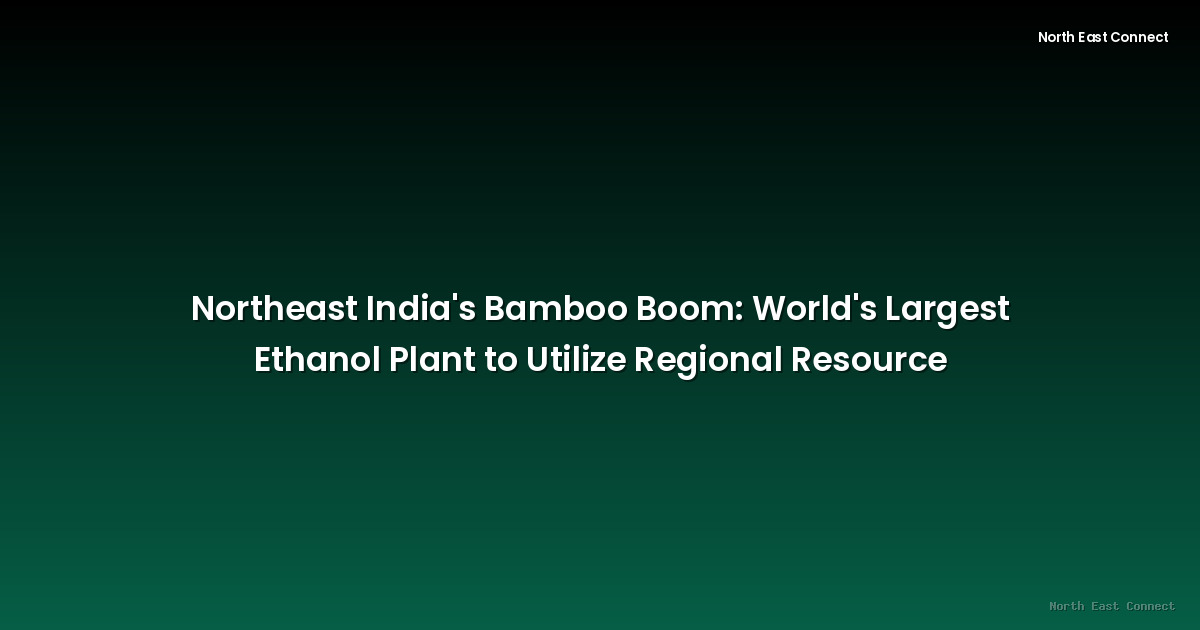2025-09-18 · News
Northeast India is poised for significant economic growth with the establishment of the world's largest bamboo-based ethanol plant. This ambitious project leverages the region's abundant bamboo resources, transforming them into a sustainable and renewable source of energy. The plant's location within Northeast India signifies a strategic move towards utilizing locally available resources to fuel economic development. This initiative not only aims to boost the regional economy but also promises to create numerous employment opportunities, impacting the livelihoods of local communities.
The abundance of bamboo in the Northeast has long been recognized, but its full potential remained largely untapped. This new ethanol plant represents a significant step toward harnessing this potential. The project's scale underscores the growing global interest in sustainable biofuels and the recognition of bamboo as a viable feedstock. The technology employed in the plant is expected to be highly efficient and environmentally friendly, minimizing waste and maximizing ethanol production.
The economic benefits extend beyond job creation. The increased demand for bamboo is likely to stimulate local farming and cultivation, leading to improved rural incomes. Furthermore, the project is expected to reduce reliance on fossil fuels, contributing to a greener and more sustainable energy landscape in Northeast India. The plant's operation will likely lead to further investment and development in the region, attracting other businesses and creating a positive ripple effect.
However, the project's success hinges on several factors. Sustainable harvesting practices are crucial to prevent deforestation and ensure the long-term viability of bamboo resources. Effective infrastructure, including transportation networks, is also essential for the efficient movement of raw materials and finished products. Moreover, the plant’s operation needs to be environmentally responsible, minimizing any potential negative impact on local ecosystems. Careful planning and management will be key to mitigating any challenges and maximizing the benefits of this ambitious venture.
The government's support and collaboration with local communities will be crucial for the successful implementation of this project. Ensuring fair compensation for farmers and engaging local communities in the project's management are vital for building trust and ensuring its long-term sustainability. This model could serve as a blueprint for other regions rich in bamboo, demonstrating the potential of this renewable resource for economic development and environmental sustainability.
The establishment of the world's largest bamboo-based ethanol plant marks a significant turning point for Northeast India. It represents a promising opportunity to leverage the region's natural resources for economic growth, job creation, and sustainable development. While challenges remain, the potential benefits are substantial, highlighting the transformative power of sustainable initiatives in fostering regional progress. Further development and investment in this area have the potential to put Northeast India at the forefront of the global biofuel industry.







